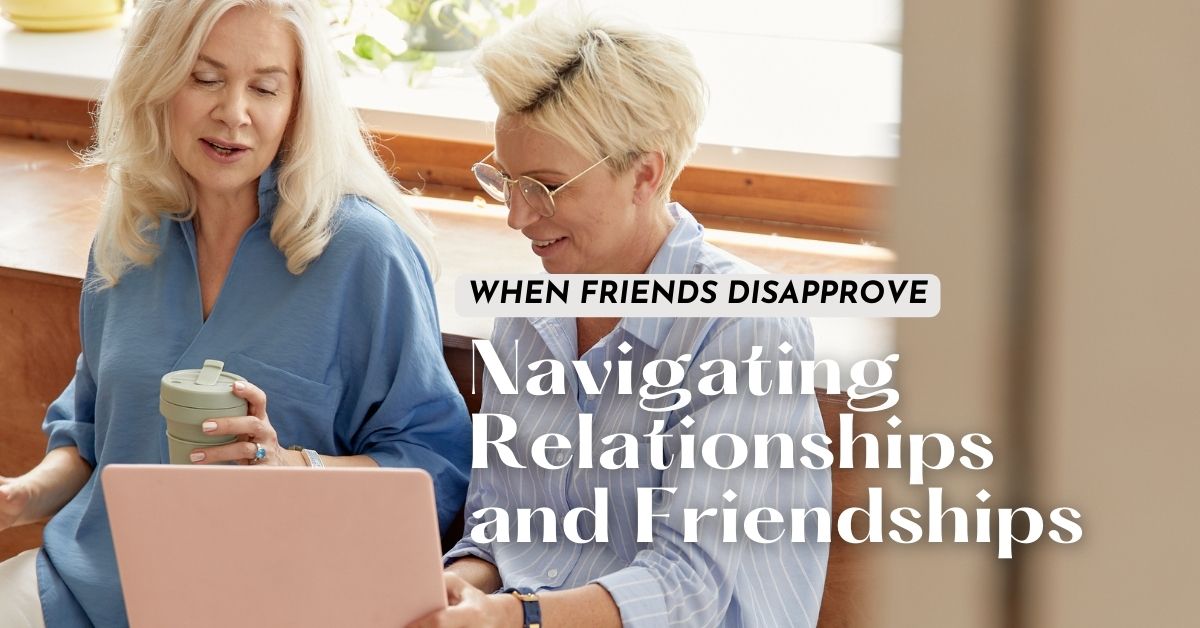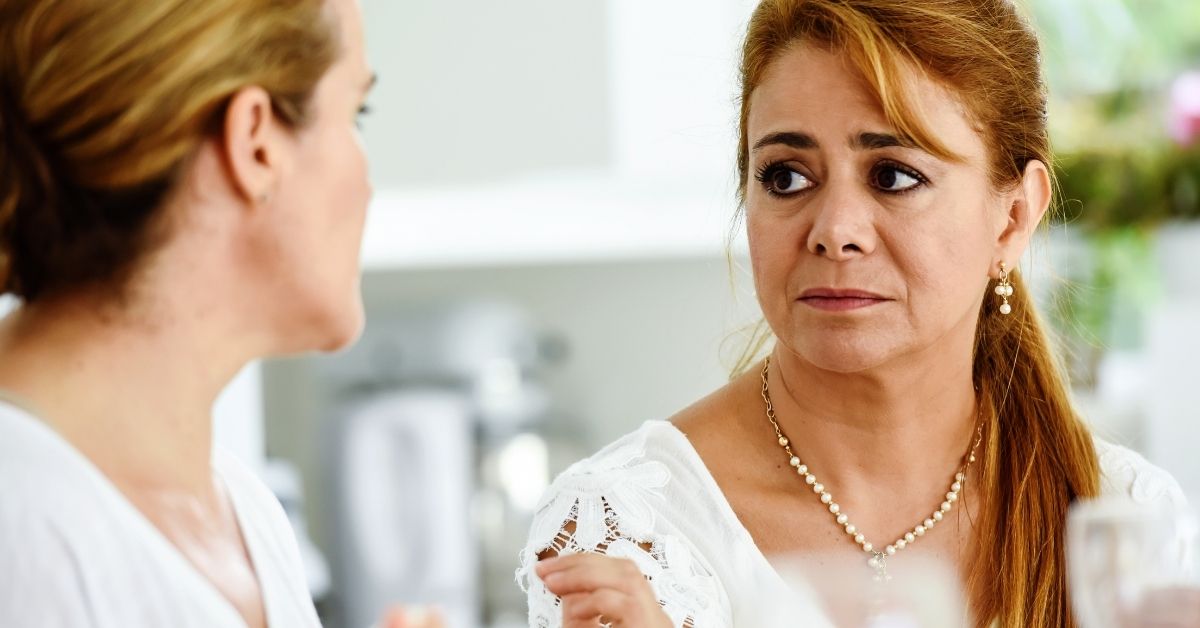
When Friends Disapprove: Navigating Relationships and Friendships
You’ve finally met someone who makes your heart skip a beat. The excitement builds as you imagine telling your friends, expecting them to be just as thrilled.
But sometimes, instead of support, you get raised eyebrows and awkward silences. Friends disapproving of relationships can leave you feeling alone at a time you need encouragement most.
Trying to figure out how to handle this “friend-zone drama” isn’t easy, especially if you’re dating over 50. Friendships are a huge part of your life, and so is finding happiness. Let’s dig into why friends might struggle with your new relationship and what you can do next. This guide will give you practical ways to balance your love life with your friendships, so you don’t have to choose one over the other.
Why Friends Disapprove of Relationships
When friends disapprove of relationships, it’s usually not meant to hurt you. Many times, it’s because they care about you. Let’s look at a few common reasons:
- They Feel Protective: Good friends don’t want to see you get hurt, especially if you’ve been through tough times before.
- Afraid of Losing You: New relationships can shift the group dynamic. Studies show that people lose two close friends on average after starting a new romantic relationship.
- Spotting Red Flags: Sometimes, your friends think they see something wrong—maybe your new partner seems controlling or distant.
- Personal Biases: Their own bad experiences might cloud their judgment about who’s good for you.
- Change is Hard: Friendship routines get disrupted—maybe they worry movie nights or road trips won’t happen as often.
Understanding these motives is important. It allows for honest, open conversations and is the first step toward balancing love and friendships.
The Emotional Weight When Friends Disapprove
Having friends disapprove of relationships can really sting. It’s hard not to question yourself, especially if these friends have been your support system for years.
The stress might show up as:
- Doubt: You might start wondering if they see warning signs you haven’t noticed.
- Guilt: You feel bad for being happy when your friends are upset or distant.
- Loneliness: The people you count on most may now seem farther away.
- Stress: Trying to please everyone can wear you out emotionally.
About 43% of singles over 50 say they’ve felt unsupported by friends when entering a new relationship, making this a common situation. Remember, it’s natural to want both your romantic relationship and your friendships to thrive.

Tips for Talking with Friends About Your Relationship
Don’t let things fester. Direct and kind communication helps. Here’s a simple plan for talking it through:
- Pick the Right Time: Meet without your partner, so friends feel okay sharing opinions.
- Listen First: Let them speak. Show you appreciate their concern.
- Be Honest: Tell them why your relationship matters to you—what makes you happy.
- Ask for Details: If a friend says, “Something feels off,” ask gently for examples.
- Set Boundaries: Make it clear—with kindness—that the final say is yours.
Here are some phrases that can help keep things positive:
- “I know you care about me, and I appreciate it.”
- “This person brings a lot of joy into my life.”
- “I want you to feel comfortable sharing, but I hope you can support my choices, too.”
Having these talks isn’t always easy, but they can stop small problems from becoming big divides. Open conversations also help with navigating relationship challenges, so everyone feels heard.
When to Listen and When to Trust Yourself
Not all advice is equal. It’s important to know when feedback from friends is helpful and when it’s not.
- Take Warnings Seriously: If multiple friends mention concerning behavior—like your partner being disrespectful or isolating you—pay attention. Relationship experts say ignoring red flags early can lead to regret later.
- Trust Yourself on Preferences: If the criticism is about your partner’s fashion sense or hobbies, remember those are personal preferences.
- Balance Head and Heart: Statistics show that a couple’s long-term success often rests on shared values and respect, not outside approval.
Staying true to yourself is the best way to build a happy relationship. Friends disapproving of relationships might make you uncomfortable, but your happiness is up to you.
Balancing Love and Friendships
It’s a myth that you have to pick between love and friendship. The real goal is to find a balance that works for you.
Here’s how to keep both parts of your life healthy:
- Prioritize Time: Keep making space for one-on-one days with friends. Don’t let your whole life revolve around your partner.
- Group Activities: Invite friends and your partner to casual outings. Low-pressure meetups can help everyone connect.
- Be Open-Minded: Sometimes, as your friends get to know your partner, their feelings soften.
- Find Support Elsewhere: Reach out to neutral friends or family who can offer perspective without judgment.
- Set Realistic Expectations: Not everyone will get along, and that’s okay.
Surrounding yourself with positive, supportive people helps you grow both your relationship and your friendships. Over time, many friends warm up and come to support your happiness—even if it takes a little while.
Navigating Relationship Challenges with Confidence
You’re not alone if you’re juggling mixed feelings about friends and dating. An AARP survey found that 36% of people over 50 have struggled with their social circle when starting a new relationship.
Give yourself some grace. Every relationship path is different. Here are a few things to keep in mind:
- Self-Reflection Matters: Check in with yourself. Are you happy? Are your values and needs being met?
- Stay Flexible: Don’t dig in your heels if real problems arise, but also don’t let unhelpful opinions sway you.
- Remember Your Worth: Both your friendships and your romantic relationship deserve respect—so do you.
If you keep communication open and respect everyone’s feelings—including your own—you’ll find your way through. Learning to handle friends disapproving of relationships is a skill that gets easier with practice.











